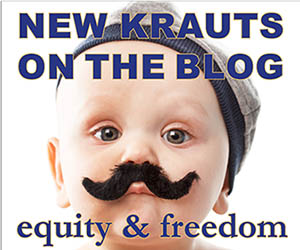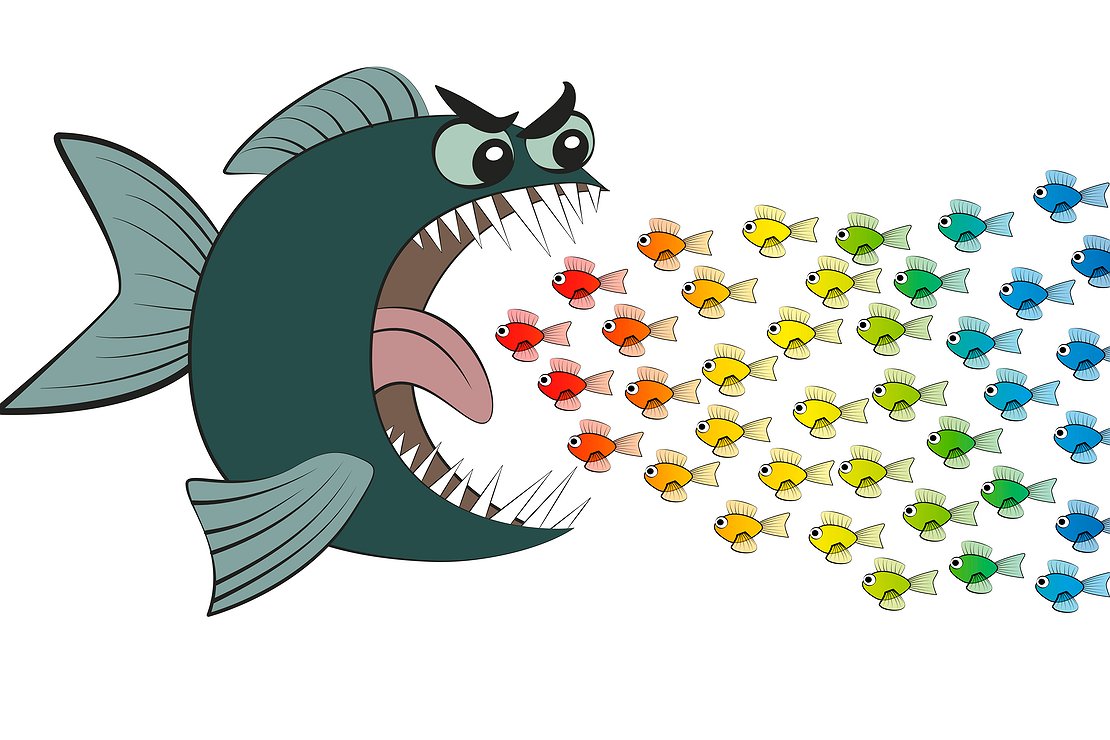
“Cool Germany”?:‘The Economist’ imparts drivel
The ‘party of Davos’ has recently penned a long job advert for a replacement for Angela Merkel – disguised as a puff piece about Germany, in their favorite rag ‘The Economist.’ Years ago, I got a call from the London-based journal. I had canceled my subscription, and they wanted to know why. At the time, it was only a technical matter, as I was about to move from Germany to England and was not yet established in a new job. But the caller did not seem entirely convinced, and probed further. I found him a bit intrusive and creepy and so I politely ended the call.
Creepy is also an adjective I would use to describe ‘The Economist’s recent leader (from April 14) and article (April 12) about Germany. Among all the ravings about a “more inclusive identity emerging” and a “more gender balanced” culture which are, apparently, “normalising” Germany, we are also informed that “Germans are divorcing more and marrying less.” Are we supposed to celebrate that? ‘The Economist’ doesn’t tell. At least they are saying that there is still a “debate” going on between two sides of a cultural divide, and that the outcome of this debate is by no means certain.
However, even that last bit is not an entirely honest assessment of the situation. In fact, one might say it’s characteristically dishonest by the journal. There is certainly a cultural divide opening up in Germany, but there is no debate. The ruling class, firmly in control of politics, media, entertainment and education, feeding us cultural Marxist lies by the bucketful, does not debate with dissenters. It ignores them, sneers at them, or shouts them down.
The journal then ludicrously claims that “the refugee crisis is expanding Germany’s horizon” and bases this statement on the ridiculous ‘compact with Africa’ advanced by the chancellor at the G20 meeting in Hamburg. It’s at this point that ‘The Economist’ goes into advertising mode. Merkel’s “uncontentious, reactive style” may have “suited her times.” But after the disastrous election result, which every person with an ounce of decency would have taken as a cue for resigning, it's clear that the ruling class is frantically looking for a replacement for her. After losing the White House to Trump, and barely preventing a takeover of the Elysée by Marine Le Pen, the globalist elite want to make sure that Berlin does not slip out of their hands. They don’t spell that out, of course. But that’s how it will be read.
So much for the leader. The accompanying article is even worse. Its author, one Jeremy Cliffe, celebrates, or at least hopes for, the emergence of a new, “cool” Germany, where “an end to stark national borders” will be “exposing the country to economic, social and technological changes abroad.” He calls the nation that brought the world Bach, Beethoven, Wagner, Albrecht Dürer, Caspar David Friedrich, Goethe, Luther, Marx (OK, strike that), Nietzsche, the Grimm brothers, Kepler, Einstein, Heisenberg, a “hitherto hidebound place” which is now, at last, “turning into something more informal, more open and more varied.”
As if this were not sickening enough, the article’s author then hails a second rate German comedian’s video, “Be Deutsch,” as the “unofficial anthem of this cool new Germany.” It quotes from Jan Böhmermann’s mainly English lyrics: “Guten Tag, the true Germans are here/ We are xenophobics’ biggest fear/ You call for strong leaders, fences and walls/ But being like us takes bigger balls.” The language gets worse after this, but that is another thing you won’t learn from ‘The Economist.’ At some point, the video shows a roughly 12-year-old girl singing, or rather chanting angrily at a group of “xenophobic” demonstrators. She uses the f-word liberally and ends by throwing a book at them, shouting: “Read Kant, c**t.” Very funny, indeed. Cool. Old Immanuel would be delighted, for sure. That’s the level of ‘debate’ currently emanating from the ruling class in Germany. On a good day.
And that’s the quality of information we get from ‘The Economist.’ The song also contains the line, which the author quotes, “We are no longer murderous vandals/ We’ll come for you in socks and sandals.” Politicians of the ‘Alternative für Deutschland’ party, and other activists who work peacefully to have the immigration policy changed, who regularly get threatened, physically beaten up or their property destroyed by antifa goons with clubs and boots, can only consider this line to be mockery of the worst kind. And ‘The Economist’ joins in and encourages the jeering mob.
The magazine celebrates this vile video, mentioning that it has been viewed over seven million times. What they don’t say is that it’s old news. It’s from March 2016. Rather than being a sign of a “cool” new Germany, it’s now more likely to be a total embarrassment. Too many awful things have happened since then, all attributable to the migrant wave from that year – rapes, murders, day-to-day bullying in schools and on the streets, terror attacks. But ‘The Economist,’ hoping that no one will notice, doesn’t point this out. Anthem of the cool new Germany? More likely wishful thinking in London.
About a year after I canceled my subscription, I considered a renewal. By then, however, I had read “What has Government Done to Our Money”. The author of that book, Murray N. Rothbard, exposed in it the fraudulent fractional reserve fiat money system that lies at the root of much of the evil of our times. And I realized that ‘The Economist’ was a staunch supporter of exactly that kind of monetary policy. I never renewed my subscription.
However, at least the quality of the articles used to be better than this drivel. If Cliffe’s work is indicative of the propaganda the globalist establishment can muster in its house magazine, they’re in bad shape. Which is good news for the rest of us.




